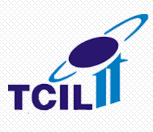Oracle Database 12c: DBA course is offered by TCIL-IT. TCIL-IT Chandigarh is a fastest-emerging company in the IT and telecommunications industry. Being a well accredited company, we have specialized in the field of various industrial training programs.

Oracle Database 12c: DBA course is offered by TCIL-IT. TCIL-IT Chandigarh is a fastest-emerging company in the IT and telecommunications industry. Being a well accredited company, we have specialized in the field of various industrial training programs.
Modules:
TCIL-IT Chandigarh is a fastest emerging company in the IT and telecommunications industry. Being a well accredited company, we have specialized in the field of various industrial training programs.
And have been maintaining a strong foothold ever since our inception in the year 1999 with ICS, Chandigarh. Intelligent Communication Systems India Ltd. or ICSIL controls its managerial and administrative aspects.
© 2025 coursetakers.com All Rights Reserved. Terms and Conditions of use | Privacy Policy